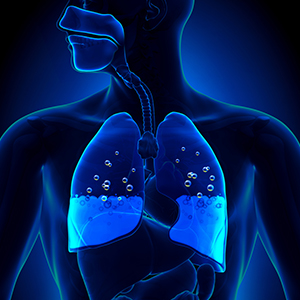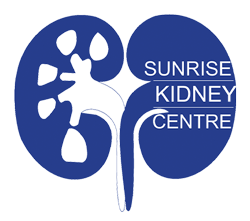Pulmonary Edema treatment in Vijayawada
Pulmonary edema is a condition characterized by the abnormal accumulation of fluid in the alveoli and interstitial spaces of the lungs, which hampers gas exchange and can lead to respiratory distress. It often results from heart failure, where increased pressure in the pulmonary circulation causes fluid to leak into lung tissues, but can also be caused by direct injury to lung tissue, certain medications, or high-altitude exposure. Symptoms typically include shortness of breath, especially when lying down, coughing with frothy sputum, and a feeling of suffocation, making it a critical condition requiring prompt diagnosis and management to restore proper oxygenation and address the underlying cause.
Relation between kidney health and pulmonary edema
Maintaining kidney health is vital for overall well-being, as kidneys filter waste, balance fluids, and regulate blood pressure. Chronic kidney disease can lead to complications like pulmonary edema, a condition where excess fluid accumulates in the lungs, causing difficulty breathing and impaired oxygen exchange. Pulmonary edema often results from heart failure, which can be exacerbated by kidney dysfunction, highlighting the interconnected nature of these organs. Preventative measures include controlling blood pressure, avoiding nephrotoxic substances, and managing underlying conditions like diabetes. Early detection and treatment are crucial to prevent progression to severe complications, emphasizing the importance of regular health check-ups from a kidney doctor in Vijayawada for optimal kidney and lung health.

Symptoms
Kidney-related pulmonary edema occurs when impaired renal function leads to fluid overload, causing fluid accumulation in the lungs. Symptoms typically include sudden shortness of breath that worsens with exertion or lying flat, often accompanied by a feeling of suffocation or drowning. Patients may experience a persistent cough that produces frothy, blood-tinged sputum, indicating pulmonary congestion. Chest tightness and a rapid, shallow breathing pattern are common as the body attempts to compensate for decreased oxygen exchange. Swelling in the lower limbs, ankles, or abdomen (edema) may be present, reflecting systemic fluid retention. Additionally, fatigue and weakness can occur due to reduced oxygen delivery, while rapid heartbeat (tachycardia) may be observed as the heart works harder to supply oxygen. In severe cases, cyanosis—bluish discoloration of lips and fingertips—may develop, signaling significant hypoxia. Kidney dysfunction often presents with symptoms like decreased urine output, dark-colored urine, or signs of uremia such as nausea and confusion, which may indirectly contribute to pulmonary symptoms. The combination of respiratory distress, frothy sputum, edema, and systemic signs of renal impairment should alert clinicians to kidney-related pulmonary edema, necessitating prompt diagnosis and intervention.
Preventive strategies
Individuals at heightened risk for pulmonary edema should consult healthcare professionals for tailored management strategies. Maintaining a nutritious diet and achieving a healthy weight are essential in alleviating symptoms and preventing recurrence, especially for those with congestive heart failure. Pulmonary Edema treatment in Vijayawada involves incorporating regular physical activity can bolster cardiac function, while lifestyle modifications such as reducing salt intake to minimize water retention, managing cholesterol to prevent arterial blockages, and quitting smoking to lower cardiovascular and respiratory risks are crucial steps. These proactive measures collectively help mitigate the strain on the heart and improve overall lung and cardiovascular health.
When does clinical intervention become urgent?
Pulmonary edema that develops rapidly can be life-threatening, requiring immediate medical attention if you experience symptoms such as sudden and severe shortness of breath, a choking sensation or difficulty breathing, wheezing or gasping sounds, pink-tinged or bloody sputum, excessive sweating alongside breathing trouble, bluish or grayish skin tone, confusion, significant drops in blood pressure leading to dizziness or weakness, or a sudden worsening of existing symptoms. Promptly contacting the best kidney hospitals in Vijayawada is crucial to ensure swift intervention and prevent serious complications.
Discover unparalleled kidney care with Dr. M. V. Sai Krishna, Vijayawada’s premier nephrologist celebrated for his compassionate approach and cutting-edge expertise. At Sunrise Kidney Centre, he is committed to transforming lives through personalized treatment plans, innovative therapies, and a patient-centered philosophy that ensures the highest standards of nephrology care.

